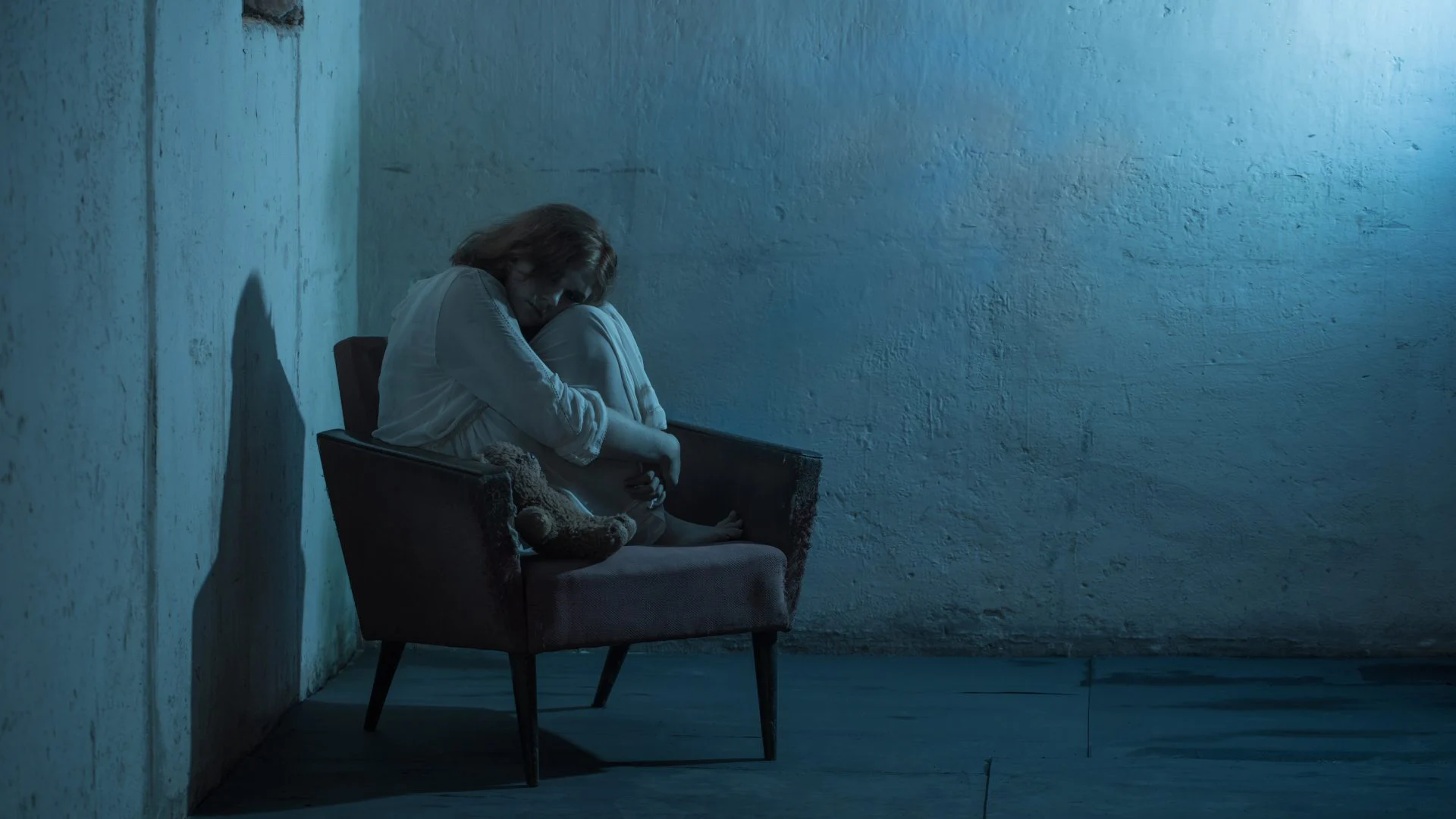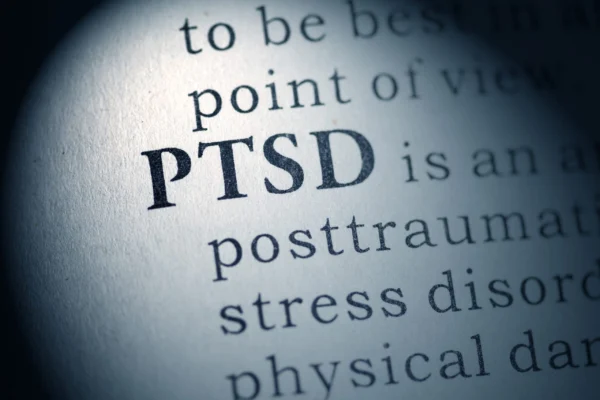When you hear the word post-traumatic stress disorder, what comes to mind? You may think of a war veteran, battered and bruised, returning home after being deployed overseas. Whilst this was certainly the origin of the PTSD diagnosis, the term has now expanded greatly to include not only the armed forces, but anyone who has lasting effects after experiencing a traumatic event.
But what happens when you were so young, you don’t even remember the trauma? Or you may remember bits and pieces but not enough to recall exactly what happened? When we experience trauma early on in life, it can follow us well into adulthood.
Let’s discuss what PTSD is, and how childhood trauma might be impacting you today.
What Does the Term ‘Childhood Trauma’ Mean?
The term trauma by itself is defined as any distressing, frightening, or harmful experience that overwhelmed our ability to cope in the moment.
Whilst it is each individual’s perception of an event that will deem something ‘traumatic’ or not, it may consist of a situation in which you felt:
- Terrified
- Humiliated
- Rejected
- Unsafe
- Abandoned
- Neglected
- Threatened
- Trapped
- Powerless
Childhood trauma is often described in terms of ACEs (adverse childhood experiences). The more experiences a child experiences or witnesses, the more likely they are to develop social, emotional, and cognitive difficulties.
Examples of ACEs include, but are not limited to:
- Abuse: Physical, mental, emotional, or sexual
- Neglect
- Substance abuse
- Divorce
- Mental illness
- Incarcerated relative
- Domestic violence
- Community violence
- Car accidents
- Death of a loved one
In simpler words, childhood trauma is any event a child experienced or witnessed that undermined their sense of safety and protection.
Learning how to cope with these experiences is vital for a child as they grow older. However, some children never get the support they need and can end up with both behavioural issues and/or mental health problems.
Defining PTSD
Post-traumatic stress disorder, or PTSD, is the direct result of experiencing trauma. It is the emotional response in the aftermath of a traumatic event.
Individuals who suffer from PTSD have an incredibly difficult time moving past their trauma and can experience symptoms such as:
- Intrusive thoughts
- Nightmares
- Flashbacks
- Hyperarousal
- Increased paranoia
- Sleeping difficulties
- Intense distress when triggered
Experiencing any of these symptoms after a traumatic event is normal, and they often pass within a few weeks. However, if you are experiencing prolonged symptoms, you might be struggling with PTSD.
What Does Childhood PTSD Look Like?
When children experience trauma at a young age, in which their brains are unable to understand the event or the coping process afterward, they may develop c-PTSD. Complex Post-Traumatic Stress Disorder is a form of PTSD that occurs when an individual experiences chronic, long-lasting, or repeated trauma. For children, this often looks like child abuse, neglect, or assault.
Children go through fragile stages of development, and trauma experienced before 6 years of age has been known to cause impairment in the brain of growing children. At this age, damage to their prefrontal cortex due to trauma can cause issues later with memory, attention, thinking, language, and awareness.
C-PTSD often occurs in children who experienced trauma before their sense of identity, and cognitive abilities have developed, thus impacting the way their brain grows afterward. Children who have endured trauma at a young age perceive the world through an unsafe lens, constantly assuming even the smallest things may be a threat.


Symptoms of c-PTSD In Children
Childhood trauma does not always happen within the home. It can happen at school through bullying, harassment, or assault. It can happen due to natural disasters, animal bites, or medical procedures. When trauma does not originate in the home, it can be difficult to determine whether your child has developed PTSD.
A few signs to look out for include:
- Sleeping too much
- Sleeping too little
- Depression
- Always appearing as though they are ‘on guard’
- Detachment
- Losing interest in activities they once enjoyed
- Trouble with affection
- Violence or aggressive behaviours
- Flashbacks
- Purposely avoiding certain people or places
It is important to note, children (and adults) can experience symptoms of PTSD in both physical, and emotional ways.
Adults who experience trauma often have the ability to ‘fight or flight’. However, with children, this is rarely an option. Instead, children will ‘freeze’. They will dissociate or disconnect from reality. Even when children shut down, their bodies still produce stress hormones. These hormones then run rampant throughout their body, damaging their immune system.
This means children can experience physical symptoms after trauma such as headaches, indigestion, stomach pains, fatigue, or muscle aches.
Can Childhood Trauma Impact an Adult?
The short answer? Yes.
Unresolved childhood trauma can follow you well into adulthood, impacting every area: social, emotional, behavioural, and even future relationships. While you may not fully remember every detail of your childhood trauma, it is important to remember our brains often suppress traumatic experiences in order to protect us.
Children who undergo chronic trauma often live with overly heightened responses as their brains are constantly on the lookout for any perceived threats. Since children are too young to understand this as being unhealthy, they instead take on this new persona.
This overactive emotional state then transfers into adult life and typically looks like someone who is constantly trying to override their increased stress response. They may engage in heavy drinking, excessive drug use, or bury themselves in work. It can greatly impact relationships, as children with trauma grow up with a strong sense of mistrust for others, whilst simultaneously longing to soothe their inner child’s desire to be loved.
Adults with unresolved childhood trauma may have a particularly difficult time regulating their emotions, controlling their anger, and in some cases, view themselves as an outsider to the rest of the world. They may carry with them immense shame, guilt, or judgment about what happened to them.
Your Childhood Trauma Does Not Have to Define You
Some people choose to bury their childhood trauma deep down into the darkest parts of themselves. However, trauma is bound to come up one way or another. If left unresolved, childhood trauma can result in self-destructive behaviours such as substance abuse, or self-harm.
However, your childhood trauma does not have to define the rest of your life. In many cases, simply acknowledging what happened in the past is enough to kickstart an entire journey of healing and growing.
If you feel as though you have PTSD stemming from childhood trauma, it is highly encouraged to seek treatment from a mental health professional.
There is no changing the past, but you can move forward.
Orchestrate Health offers bespoke mental health services that people can access from the comfort of their own home or within their community, with rapid response times and even daily visits if needed. Orchestrate Health can provide help for those struggling with childhood trauma, and remove the inconvenience of travelling to and from appointments.
Resources:












